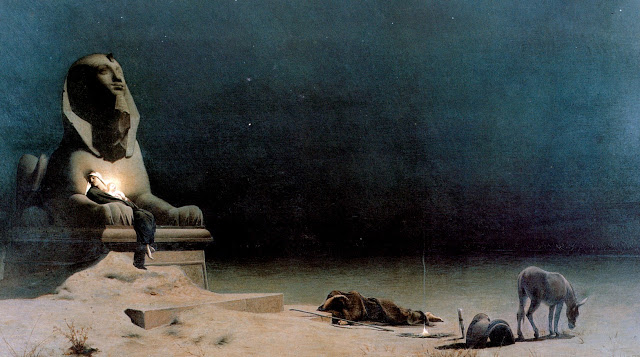Jesus was a refugee. That’s something to think about today as the global refugee crisis generates so much discussion.
In many war-torn 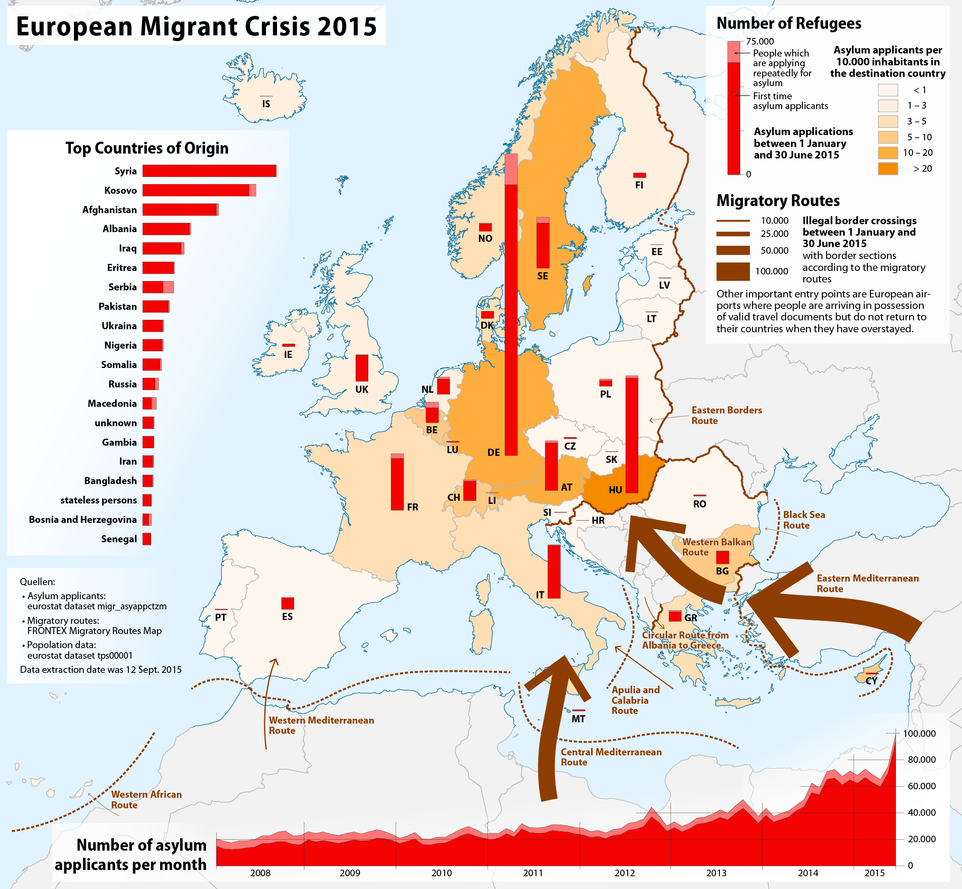 countries, people are being forced from their towns and cities and into refugee camps, either within their own countries or across borders. Others are desperately seeking refuge in Europe, North America and elsewhere. Some European nations are being overwhelmed.
countries, people are being forced from their towns and cities and into refugee camps, either within their own countries or across borders. Others are desperately seeking refuge in Europe, North America and elsewhere. Some European nations are being overwhelmed.
In all this foment it’s good to remember that Jesus was a refugee. His family fled the tyrant Herod, who was killing young Jewish boys. Joseph, warned in a dream, took his family to Egypt.
Persecution of Christians is nothing new. Christians—and Jews—have suffered since before the birth of Christ. What truths and application can we derive from the history of Christian persecution? That is the concern of this series of posts.
In this post, we will examine the social-political climate in Judea at the time of Christ’s birth. Subsequent articles will examine the climate in the Roman Empire when the church was founded. The New Testament begins with the murder of the innocents at Christ’s birth and ends near the 70 AD sacking of the holy city of Jerusalem.
At the birth of Christ, Augustus (63 BC – 14 AD) was the emperor of Rome, and Herod the Great the King of Judea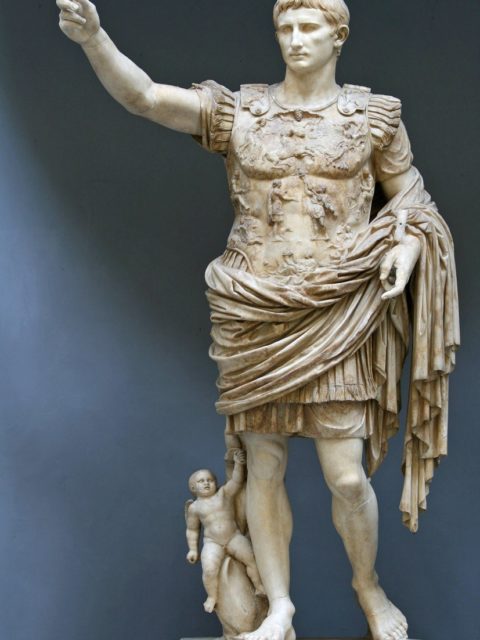 (and thus of the Jews). Pagan immorality and murderous rampage surrounded the Caesars.
(and thus of the Jews). Pagan immorality and murderous rampage surrounded the Caesars.
Herod’s “development” activities in Judea found favor with Augustus. He expanded and upgraded the Jews’ temple, built the commercial port at Caesarea Maritima, and provided aqueducts to supply Judea with water. To keep the people of Judea pacified, he built theaters and sports complexes. And to help maintain order Herod built Roman fortifications.
All these improvements cost money, and the Romans taxed the people into poverty to pay for these public-works projects.
Ambitious, jealous, and perhaps paranoid, Herod saw threats everywhere. When he suspected his wife Mariamne of treachery, he had her murdered. For good measure he included her mother, her grandfather and two of her sons (whom he drowned in the palace swimming pool). He also suspected two brothers-in-law of sedition and had them dispatched.
Sensing that his subjects would celebrate his death, Herod imprisoned many beloved rabbis and their students to be killed the moment he died. He could not make people mourn for him, but he would make them mourn when he died. This insidious evil manifest at the birth of Christ is not unlike the evil we witness today with ISIS and other malevolent groups.
Into this world of mad tyranny Jesus was born. His birth account includes the unforgettable story of the Massacre of the Innocents (Matt 2:16-18). In the last years of Herod’s wretched life, his insane jealousy flared at the announcement that the “King of the Jews” had been born. To prevent any usurper, Herod ordered the murder of all Jewish males, two years and younger, in the vicinity of Bethlehem.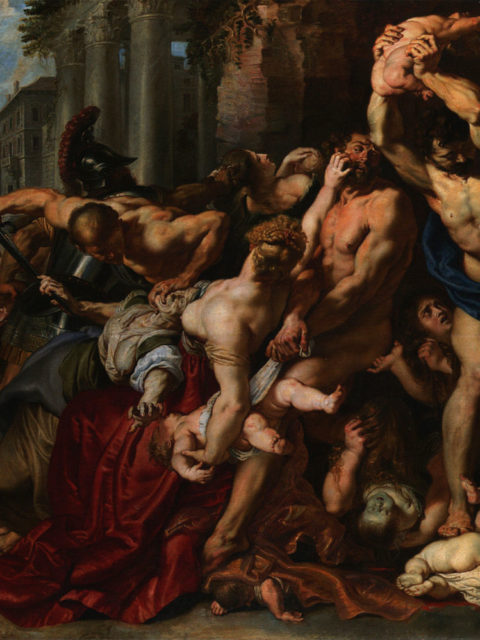
Prior to the birth of Christ, the Roman authorities had ordered a census to survey their restless Jewish population. Thus were Joseph and Mary forced from their home in Nazareth to Bethlehem where the Messiah was born. Later, Herod’s murderous reputation prompted Joseph to flee with his family into Egypt.
Jesus was a refugee. As we begin our exploration of the persecution of the church, it behooves us to reflect that Jesus was a refugee. He was forced to flee persecution. The baby Jesus was a refugee. When you think of families fleeing for their lives today because of barbaric leaders and persecution, remember that Jesus was a refugee. He who is Lord and King was himself a refugee. He knew personally what it was like to be forced from his home and country (Heb 2:17-18).
Two years later, after Herod died, Mary, Joseph and the child Jesus returned to Israel.
Such was the climate in Palestine at the birth of Christ. The Jews were not free as they had been under David and Solomon. For generations, Israel had been a poor, rump state, under control of a succession of foreign powers. Now Rome ruled via violent and tyrannical emperors.
Not only was the beginning of Jesus’ life marked by persecution, so was his death. Jesus died on a Roman cross. Crucifixion was one of the cruelest, most painful ways to die. Christ stood before Pontius Pilate, prefect of the Roman province of Judea. Sentenced to death, Jesus was stripped and brutally beaten, and then forced to carry his own instrument of execution. He lay down on it. Nails were driven through his hands and feet. He was suspended and suffered unspeakable agony until he finally died.
Jesus’ birth, life, and death took place in the context of Roman occupation and persecution.
Pilate hoped that crucifying Jesus would satisfy the Jews and reduce the unrest in Judea. But tensions continued to rise.
Not all Jews responded to Roman rule the same way. Some (read Sadducees) became “Hellenized” and adapted to the Roman way of life. Others appreciated the modernization and relative stability of Roman rule and sought to live in peace as long as the Romans left them alone.
But the taxes became a heavy burden. Under Caligula (emperor 37-41 AD) life became oppressive. More Jews resisted. The influence of the Zealots (Jewish revolutionaries) grew. Perhaps the last straw was Caligula’s 39 AD edict, never enacted, to erect a statue of himself in the temple. The very idea brought Jewish blood to a boil and they decided to fight this sacrilegious act. Fortunately Caligula died before his edict could be enforced.
Yet another movement was emerging, tiny at first, but growing. A small group of followers of the Nazarene began pursuing a new vision. Their worldview stood apart from the legalism of the Pharisees, the conformity of the Sadducees and the open revolt of the Zealots. They brought a new culture, one of love, service, faithfulness in marriage, and the pursuit of justice. Christians promoted a moral vision the exact opposite of the pagan culture of amoral sexuality and cruelty. Some have argued that the Christians gave mankind its humanity.
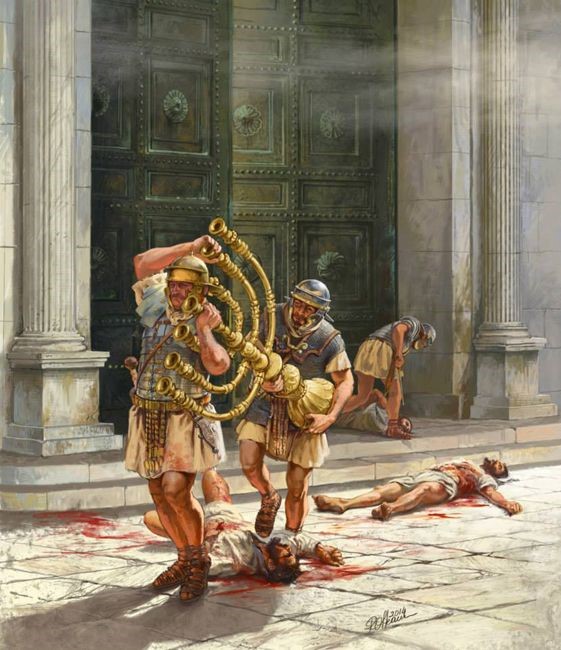 By the middle of the first century the gospel had spread to North Africa and southern Europe. A growing number of Christians lived in the heart of the Roman world, the city where Nero ruled as emperor: Rome.
By the middle of the first century the gospel had spread to North Africa and southern Europe. A growing number of Christians lived in the heart of the Roman world, the city where Nero ruled as emperor: Rome.
Whatever the actual spark, the Jews revolted against Rome. In what has been called The Great Jewish Revolt (66-70 AD), or the First Jewish-Roman War, the Jews of Judea rebelled against their colonial masters. In 66 AD they took control of Jerusalem. In 70, the Romans, led by the future Emperor Titus, laid siege to the city. They eventually brought the Jews to their knees. The Romans sacked the city and destroyed the second temple. Only the Western Wall, the actual foundation of Herod’s temple, survived. Also known as the Wailing Wall, it remains the holiest site of modern Jews.
Into this tumultuous time the early church was born, and the small band of Christ’s followers began to suffer persecution. Jesus was a refugee, and His followers suffered as well. This is the context of Peter’s first letter and the subject of this series of posts.
- Darrow Miller

